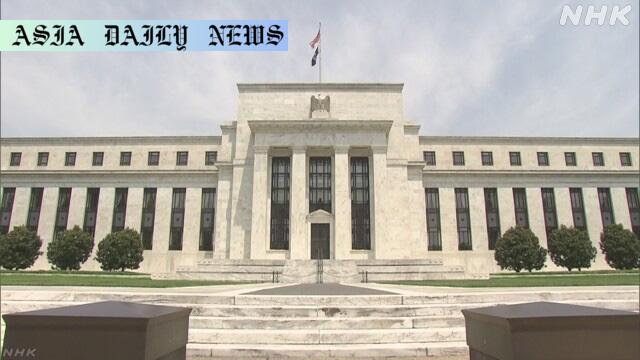Federal Reserve: Adriana Kugler to resign, allowing Trump to make an impactful choice.
Adriana Kugler announced her resignation from the Federal Reserve.
Her departure allows Donald Trump to appoint a new member.
This opens opportunities for leadership changes in the central bank.
Trump has previously criticized Fed Chair Jerome Powell.

Adriana Kugler’s Resignation: An Unexpected Federal Reserve Change
Adriana Kugler, a prominent member of the U.S. Federal Reserve Board, has announced her resignation, which will take effect on August 8. This move has surprised many economists and analysts, as her term was set to expire in January of the following year. Kugler has stated her intent to return to academia, resuming her role as a university professor. Her resignation creates a notable vacancy amidst an already volatile monetary policy environment.
The Path Forward: Trump’s Role in Shaping the Federal Reserve
With Kugler’s departure, former President Donald Trump, who previously appointed four members to the Federal Reserve Board during his tenure, now has an additional opportunity to influence its composition. Trump’s intent to leverage such a chance has been clear, as he has been vocal in criticizing current Fed Chair Jerome Powell, particularly over monetary policy decisions involving inflation and interest rates.
The Implications for Fed Leadership
The Federal Reserve is often seen as an impartial entity with its decisions free from political ties. However, new appointments to its board carry significant implications related to the institution’s financial stability. Amid concerns of inflation, potential rate changes, and economic growth, this sudden reshuffling has captured national attention—and international scrutiny.
Analyzing Trump’s Potential Appointee
Trump has celebrated this newfound vacancy, mentioning to reporters that he is “very happy” for an opportunity to make an impactful decision. The appointee’s policy preferences, academic background, and previous financial regulatory experiences will be critical areas of focus in the lead-up. Speculation has already surfaced about a more business-friendly, deregulation-oriented nominee who aligns with broader conservative financial perspectives.
Looking Ahead: The State of the Federal Reserve Board
Regardless of the eventual nominee Trump selects, the Federal Reserve Board will continue to function as an essential institution shaping national and global economic trajectories. The next nominee’s professional qualifications and perspective on interest rate adjustments, liquidity control, and the labor market will weigh heavily on central policy decisions heading into 2024.
As this transition unfolds, all eyes will likely turn to the U.S. Senate, which will confirm the selected candidate. This process will be a defining moment for both the Federal Reserve’s independence and its long-term goals of economic stability and policy transparency.



Commentary
The Resignation of Adriana Kugler Sparks Debate
The resignation of Adriana Kugler marks a pivotal moment for the U.S. Federal Reserve. Her decision to leave her role before the end of her term is noteworthy, as it has strategic implications for the composition of the central bank’s leadership. Given the political and financial crossroads the U.S. finds itself in, such timing introduces complexities to the institution’s functioning and its ability to respond to economic headwinds.
The Influence of Trump’s Appointments
Donald Trump’s opportunity to appoint another Fed Board member is a momentous one. His previous criticisms of Fed Chair Jerome Powell have been well-documented, and this appointment may signal another effort to steer the board’s policies in his preferred direction. Such an action raises the question of how political accountability versus independence can and should coexist within this critical entity. Observers will be keen to evaluate whether this appointment will prioritize structural equity or cater to short-term political agendas.
Balancing Independence and Political Influence
A key concern now is the extent to which Trump’s influence could reshape the Federal Reserve’s autonomy. The institution has historically prided itself on its neutrality, serving as a guardian of financial stability without succumbing to partisan considerations. However, precedent shows that shifts in board members’ ideals can lead to meaningful changes in the Federal Reserve’s approach to challenges like inflation, unemployment, and market regulation.
This period of transition presents both risks and opportunities. The world is watching not just the U.S. economy but how its policymakers navigate appointments, affirm values, and adapt to the ever-evolving challenges ahead. Regardless of the appointee’s stance, they will undoubtedly shape the discourse and decisions of the Federal Reserve for years to come.